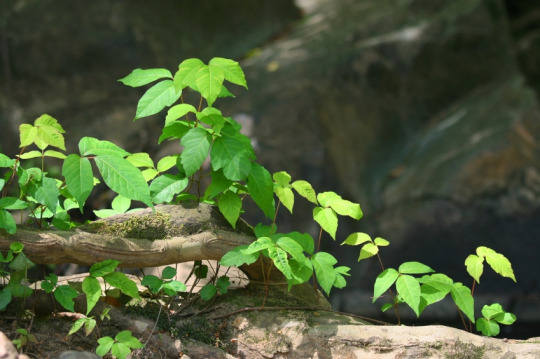
Ah, summer. Campfires, beaches, picnics… and poison ivy, mosquito bites and ticks. Take these steps to prevent skin hazards & enjoy the great outdoors worry-free!

How to prevent poison ivy
Poison ivy plants contain oil called urushiol, which can cause a painful, itchy rash 12 – 72 hours after your skin comes into contact.
To prevent a rash:
- Identify and avoid all parts of the plant, which contains three leaves, grows as a shrub or vine and flourishes in wooded areas.
- Wear long sleeves and pants when walking through the woods. But beware: a potent quantity of urushiol can penetrate cloth and even rubber.
- Watch out for anything that might have come into contact with urushiol, including dead poison-ivy plants, clothing and outdoor equipment.
- Immediately wash hands in lukewarm, soapy water after being outdoors. The American Academy of Dermatology also recommends washing clothes that might have come into contact with the plant.
If you get a rash from poison ivy, take short, lukewarm baths, apply calamine lotion or a hydrocortisone cream, and make a cool compress to soothe itchy skin. If you experience a severe reaction, see a doctor.
How to avoid mosquito bites
Mosquitos puncture your skin, feed on blood and inject a saliva that can cause itching, swelling and soreness. In some cases, mosquitos transmit harmful viruses and infections such as West Nile virus and malaria.

To avoid mosquito bites:
- Stay away from mosquito-prone environments—particularly wet, outdoor areas .
- Apply bug spray, especially in the evenings. According to the American Academy of Dermatology, products containing DEET are most effective at fending off mosquitos, but should only be given in low doses to children.
- Wear long sleeves, pants, socks, a hat and light colors. Treat clothing and outdoor equipment with permethrin, an insect repellent that sticks to fabric.
- In areas where mosquito-transmitted diseases are prevalent, avoid outdoor activities.
If bites are itchy or irritating, apply a hydrocortisone cream or calamine lotion. An ice pack may help with swelling. If you get a severe allergic reaction or fever from bites, see a doctor.
How to keep ticks away
Ticks attach to a host animal’s skin to feed on blood. Although small in size, ticks are the leading carriers of diseases to humans in the United States. Symptoms of tick-borne illness include fever and chills, aches & pains, and a rash, which generally starts at the site of the tick bite.

To prevent tick bites:
- Steer clear of high grasses and leaf-lined or bushy forest floors—where ticks can latch onto your skin easily.
- Apply bug spray. The CDC advises using a product that contains 20–30% DEET.
- Bathe or shower after coming indoors to wash off ticks that have yet to attach themselves to the skin.
- Check your skin, gear and clothing thoroughly for ticks. Be sure to check your scalp, ears, belly button and the backs of your knees.
If you find a tick on your clothes, stick them in the dryer on high heat. To remove a tick from your skin, use fine-tipped tweezers to grasp the tick close to the skin. If you develop a rash or fever, see a doctor.
By: Guest blogger Madeline

